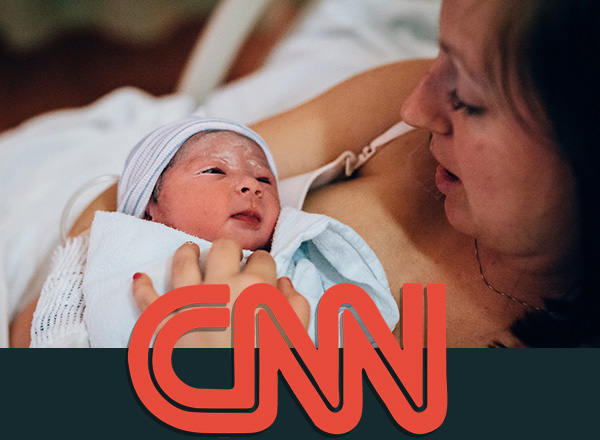How To Prepare Yourself for ivf?

When you’re planning for in-vitro fertilization (IVF), preparation is more than just scheduling a clinic visit. IVF is a journey that involves your body, mind, and emotions. If you’ve been wondering how to get ready for IVF, you’re already on the right track. By taking the right steps beforehand, you can increase your chances of success while reducing stress along the way.
Step-by-Step Guide on how to prepare yourself for IVF
- Step 1: Learn About the IVF Process
- Step 2: Get Medical Check-ups
- Step 3: Improve Your Diet and Lifestyle
- Step 4: Manage Stress and Emotions
- Step 5: Prioritise Rest and Sleep
- Step 6: Prepare Financially
- Step 7: Strengthen Partner Support
- Step 8: Stay Positive but Realistic
Step 1: Learn About the IVF Process
The first step is to understand what IVF really involves. IVF usually includes ovarian stimulation, egg retrieval, fertilization, and embryo transfer. Knowing what happens at each stage will make the process less intimidating. Talk openly with your fertility doctor, ask about timelines, success rates, and side effects. The more informed you are, the more confident you’ll feel.
Step 2: Schedule Medical Check-ups
Before IVF begins, both partners should go through fertility testing. For women, this may include blood work and ultrasound scans to check ovarian reserve. For men, a semen analysis is standard. Your doctor might also recommend additional health checks to rule out underlying issues. Addressing these medical factors early helps create the best foundation for treatment.
Step 3: Prepare Your Body with Healthy Habits
Your physical health directly affects IVF outcomes. Start by:
- Eating a balanced diet rich in lean protein, leafy greens, whole grains, and omega-3 fats.
- Taking prenatal vitamins, especially folic acid and vitamin D, as recommended.
- Keeping a healthy weight, since both being underweight and overweight can affect fertility.
- Exercising moderately; yoga, walking, or swimming are great options.
Think of this step as creating the best environment for your future baby.
Step 4: Manage Stress and Emotions
IVF can be stressful, so emotional preparation is key. Try meditation, mindfulness, or journaling to stay calm. Some couples also find therapy or support groups helpful. Sharing feelings with your partner can strengthen your relationship. Remember, your mental health is just as important as your physical health during this journey.
Step 5: Adjust Lifestyle Choices
Certain habits can lower your chances of IVF success, so it’s best to make changes early:
- Quit smoking completely.
- Limit alcohol and caffeine.
- Get enough quality sleep; aim for 7–8 hours each night.
- Stay hydrated and reduce processed foods.
Even small lifestyle changes can make a big difference.
Step 6: Get Financially Prepared
IVF can be costly, and not every insurance plan covers it. Before starting treatment:
- Check what your insurance covers.
- Create a budget or fertility fund.
- Research financing options or grants available for IVF patients.
Being financially ready means you can focus on your treatment without extra stress.
Step 7: Involve Your Partner in the Process
IVF is a team effort. Encourage your partner to adopt healthy habits, get checked for fertility health, and be part of emotional discussions. Having a strong support system helps you stay motivated and feel less alone throughout the journey.
Step 8: Stay Positive but Realistic
Finally, prepare your heart and mind for different outcomes. IVF is a journey that may take more than one cycle. Stay hopeful, but also realistic about the challenges. Celebrate small wins along the way and remind yourself that each step is progress toward your dream.
Conclusion
If you’ve been asking yourself how to get ready for IVF, the answer lies in taking care of your body, mind, and future plans. By following these 8 steps; understanding the process, improving your health, managing emotions, adjusting lifestyle habits, and preparing financially—you give yourself the best chance for IVF success. This journey may not be easy, but with preparation, patience, and support, you’ll walk into it with confidence and hope.
FAQs
- How long should I prepare before starting IVF?
Most doctors recommend preparing for at least 2–3 months before treatment for the best results.
- What foods should I avoid before IVF?
Cut down on processed foods, sugary drinks, and high-mercury fish. Focus on fresh, whole foods instead.
- Can stress lower IVF success rates?
Yes, high stress can affect hormones. Relaxation practices like yoga or meditation can help balance your body.
- Should my partner prepare for IVF too?
Absolutely. Both partners’ health matters, and lifestyle changes improve sperm quality as well.
- Is it okay to exercise during IVF prep?
Yes, but stick to moderate exercise. Avoid heavy lifting or intense workouts.

